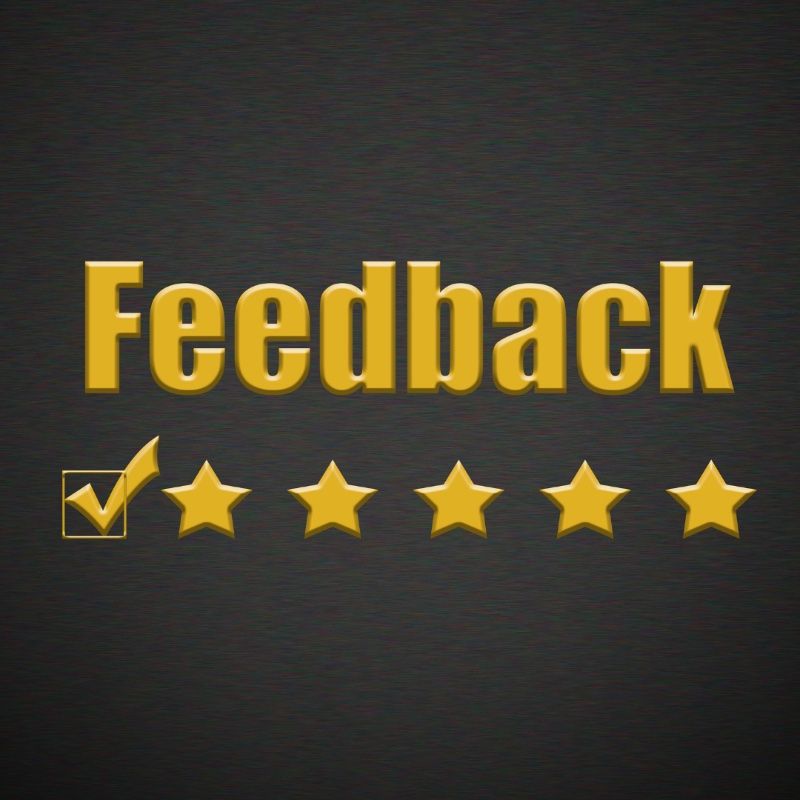Authentic Feedback
Getting honest feedback from staff is one of the most common complaints I hear from my ‘leader’ colleagues.
The problem is rooted in the reality that penalty-free environments rarely exist.
A penalty-free environment exists only when someone can do something with no risk of looking foolish, doing damage, or failure.”
When the former McClellan Air Force Base in Sacramento was repairing jet aircraft engines, they ran into an unforeseen problem training new mechanics.
With a single engine costing millions of dollars, most were afraid to touch one for fear they might ruin it.
First, they told the trainees “Don’t worry, if you break it/ruin it/do it wrong, you won’t be held accountable.” Most trainees were still reluctant to risk breaking such expensive equipment.
Then they were given broken engines to practice on. That didn’t work either. “What if I damage it beyond repair?” they asked. “Then it is just as bad as breaking a new one.”
Finally, the instructors got engines that had been scrapped because they had been deemed unrepairable.
This had now become a true penalty-free environment–there was no way a mechanic could do any damage that hadn’t already been done. In fact, through the process, the repair teams at McClellan found new and innovative ways to repair some of the scrapped engines. They were able to repair many of them and could now repair damage that had been impossible to fix previously.
Is it possible to create a penalty free in a business where the questioner is the boss (or someone who has control over the career of the individual being questioned)? Is it realistic to even try to create one?
No to the first question, and trying to do so isn’t remotely realistic. You cannot remove the risk of penalty if someone with the authority to fire you is involved. Period.
Yes to the second question, you can reduce the potential penalty even if you cannot eliminate it.
How to reduce the potential penalty when a boss is trying to get good feedback from a direct report?
Begin by thinking through exactly what your objectives are in pursuing feedback. Are you looking for confirmation of what you believe or want to hear, or are you ready to hear the truth, regardless of what that truth is? And are you prepared to deal with what others believe is the truth even though you know it isn’t? Knowing the difference and dealing with it properly is key to building a successful feedback loop.
When you start the conversation, lead with acknowledgement of your faults and weaknesses, why you’re asking for their input, and what you’re going to do with it. Remember, there may be truths you don’t want to hear, and you need to prepare yourself for them. There may be perceptions you have that are incorrect, which will require clear, patient explanation, data, and empathy.
As Samuel Clemens once said, “It ain’t what you don’t know that gets you in trouble. It’s what you know for sure that just ain’t so.”
Are you ready for that?
- Remind them of why the organization exists and what it is trying to achieve
- Reinforce their role in its success
- THEN ask them for feedback
As with all things involving change, you must convey some benefit, serve some desire, or create some understanding if you’re trying to change something. With feedback, you’re trying to change the fear of repercussion from honesty. Remember, what you want is that, honesty, not necessarily truth. When you can get your staff to give you HONEST feedback, even if it isn’t right, you’ll have a MUCH better idea of what’s going on in your organization.
If you’re successful and want to strengthen that feedback loop, you must keep staff informed about the impact their feedback had. If they were wrong, they need to know, and why. If they were right, they need to be told and appreciated. If they have wants and needs that cannot be fulfilled, for whatever reason, tell them, and tell them why. Again, be honest.
When you have success in getting honest feedback from staff, their honesty and openness need to be reinforced. Make sure they know they did well by telling you the truth, NOT what they think you wanted to know. Find some way to demonstrate your appreciation, so the next time you ask for their feedback, it won’t be so hard to get their open and honest feedback.
Stop working in a vacuum.
Email me at: [email protected] (or call +33 6 58 02 34 97) and schedule a 30-minute exploration session. We’ll talk about what makes your business special. We'll discuss how to leverage it across multiple markets. We’ll go through a 10-minute discovery session to find your organization’s strengths and weaknesses. With the dramatic changes happening around us, now is THE best time to begin.
CommunicationBusiness>Communication>Culture & People>Employees>HR & StaffingHuman Resources
#BusinessNewsletter|#BusinessSuccess|#CareerDevelopment|#EmployeeEngagement|
#EmployeeVoice|#FeedbackCulture|#FeedbackLoop|#FeedbackMatters|#HonestFeedback|
#LeadershipDevelopment|#LeadershipInsights|#LeadershipJourney|#LeadershipMindset|
#LeadershipSkills|#LeadershipTips|#ManagementInsights|#OrganizationalCulture|
#ProfessionalDevelopment|#TeamCollaboration|#WorkplaceCommunication|
#businessgrowth|continuousimprovement


